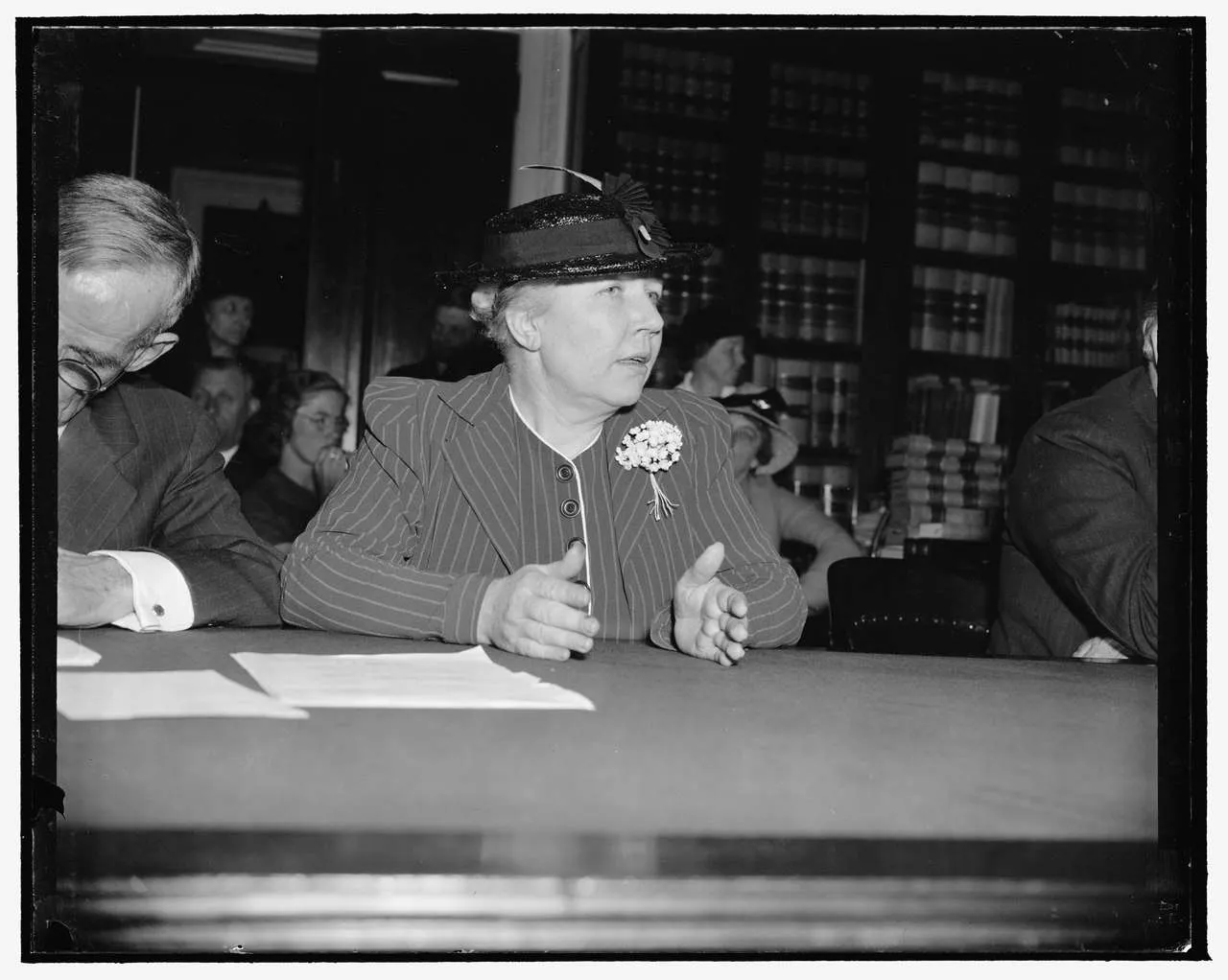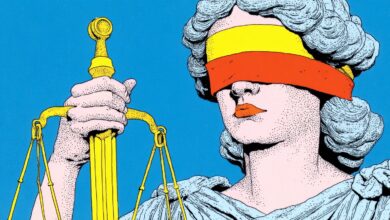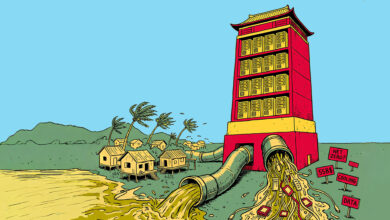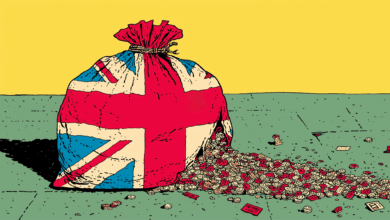The State of Liberty in America vs. Europe

Some ninety years ago, Rose Wilder Lane penned “Give Me Liberty,” extolling the remarkable freedoms Americans had, especially in contrast to their European counterparts. Written in the 1930s, Lane’s piece is both a stirring defense of American freedoms and a damning portrait of European societies still writhing under the weight of bureaucratic statism. Written just as the state interventions of Roosevelt’s New Deal began to bite, her notes stand as a useful portal into a different era—challenging and checking our current assumptions about the trajectory of transatlantic liberty. In a nutshell, Europe has leapt forward since Lane’s day, while America has wallowed, indeed probably regressed, on the frontiers of individual liberty. Revisited today, Lane’s observations prompt an uncomfortable question: what if the roles have reversed?
Lane wrote from direct experience. Having spent years in 1920s Europe, first as a writer for the Red Cross and later as a roving correspondent, she saw a remarkable cross-section of European society from France to Albania as it dug itself out of the ruins of World War I. Her essential observation was that Europe, in terms of exercising freedom, was frightfully retrograde—“for all the years of my residence in Europe,” she wrote, “a great many obstacles were enforced upon me by the police-power of the men ruling the European States.”
Her examples are vivid. She reminded her American readers that they thankfully “were not obliged,” as Europeans then were, “to carry at all times a police card, renewed and paid for at intervals, bearing our pictures properly stamped and stating our names, ages, addresses” and other personal details. They sound suspiciously like today’s driver’s licenses, which, while not technically required “at all times,” are effectively required for general day-to-day life, especially travel. As we know them now, this form of identity card did not unfold US-wide until the 1940s. Lane would no doubt be shocked.
She was horrified, after all, by police raids in Budapest where working-class neighborhoods were upended in the name of “public order” and their “workingmen’s cards” checked to ensure they were employed in their proper capacity. Lane noted that the working families’ “terror at the sight of uniforms was abject. All rose meekly and raised their hands. The policemen grinned with the peculiar enjoyment of human beings in possessing such power.” Such raids are more or less unheard of in Europe today, yet bear an uncanny resemblance to the ICE raids sweeping America coast-to-coast now. Regardless of where one comes down on the proper enforcement of immigration, the fact that modern America so resembles Europe of the 1920s should give us pause.
Such intrusions on liberty, Lane noted, were always justified by a “good motive, and a rational one.” “Public safety” and “good order” were the professed justifications for outrageous personal invasions of liberty in Europe, but Lane very rightly pointed out that social order was in fact perfectly possible amongst “multitudes of free human beings” without the heavy hand of state enforcement. She questioned, for instance:
whether there was less crime in police-controlled Europe than in America… there is no section of an American city which I would fear to go into alone at night. There were always many quarters of European cities that were definitely dangerous after nightfall, and whole classes of criminals who would kill any moderately well-dressed man, woman or child for the clothes alone.
It’s strange to read, decades later. Regardless of how accurately Lane’s perception aligned with reality at the time, the unequivocal fact today is that American cities have homicide rates several times higher than European ones. A comparison of the five largest American cities to the largest European ones shows a homicide rate of around 12.3 per 100,000 in the US versus a rate of around 1 per 100,000 in Europe. This inversion begs a question: Is there perhaps a direct correlation between freedom and security, as Lane intimated? We’re often taught to assume the reverse—that we can only gain security by trading off freedoms—but the fact that Europe and America have apparently switched places implies the opposite: European cities today certainly don’t feel more “police-controlled” than American ones, and arguably the rise of militarized police in America contributes, counterintuitively, to more violence. The phenomenon, if true, would corroborate Lane’s essential point: the more overt and violent controls are placed on society, the more violent they become.
Homicide rates and internal security are one thing, but even in day-to-day commercial norms, there has been an inversion of sorts. France, in Lane’s day, required every purchase, no matter how minuscule, to be “recorded in writing in a ledger, in the presence of both buyer and seller, as Napoleon decreed.” This tedious bureaucratic requirement added half an hour to each transaction since lines would inevitably queue as fastidious clerks dutifully recorded every purchase. “Could French merchants change it now?” Lane asked. “It is to laugh, as they say; a phrase with no mirth in it.” Apparently, however, French merchants did change it, as Europeans today from Paris to Kyiv routinely bleep instantly in and out of stores with lightning-fast electronic pay (usually on their phones). The kind of old-school check-writing at grocery stores or for paying utility bills that is still common in much of America is practically unheard of in Europe, and they giggle in consternation at how slow commerce is in modern America. Peer-to-peer transfers, wireless bank transactions, and contactless payments mean Europe is ahead of the US in speed, integration, and cost efficiency. We lag because legacy systems like ACH and banking silos slow modernization efforts.
Do such things matter in the grand scheme of things? Can liberty really be measured by contingent elements like commercial ease and city safety? Surely America stands tall amongst the nations for protecting the more abstruse yet important elements of freedom—things like political rights and civil liberties? According to those who systematically compare such things, not so much. According to Freedom House, the United States stands around 60th in rankings of political and civil freedom, well below almost all of Europe. The conservative Heritage Foundation ranks the United States around 30th in its “Economic Freedom Index,” which assesses nations on metrics like property rights protection, government integrity, and tax burden. The Cato Institute’s “Human Freedom Index” places the US at #17, behind Switzerland, Finland, Norway, Denmark, Ireland, Germany, and even the Czech Republic. There’s room to debate the metrics used to calculate these rankings, but shouldn’t Americans be sobered by the realization that no one seems to think we’re setting the bar for freedom?
But what of high-profile cases, especially in the UK, of governmental crackdowns on free speech? A US State Department report notes that the UK’s vague rules against “hateful” or “offensive” speech can lead to the “perceived weaponization of law enforcement against political views disfavored by authorities.” It’s a valid concern, to be sure, but do these rather haphazard incidents indicate a genuine and troubling structural failure—a foundational crack in European civil society that is being overlooked by freedom indices done by the likes of Cato, Heritage, and Freedom House? It seems unlikely: Cato, for instance, which publishes the least favorable index toward Europe vis-à-vis America, uses “86 distinct indicators of personal and economic freedom,” including (in the realm of freedom of expression) areas of “academic and cultural expression, government censorship, internet censorship, and media self-censorship.” They may not be perfect, but they go to great lengths to compare apples to apples, and it seems rather remarkable that eight of the nations topping Cato’s index are in Europe. As Americans, we need to be careful not to conflate concerning headlines from across the pond with broad, structural truths that get lost in the buzz.
Americans, after all, also wrestle with threats to free expression. Consider the dustup over FCC Chair Brendan Carr’s thinly-veiled attempts to weaponize his bureaucratic powers to revoke broadcast licenses for media companies that “get out of line.” The trouble, it seems, lies on both sides of the Atlantic in this regard: politicians of every stripe find it hard to contain the impulse to stifle liberty in support of their special worldviews.
As Rose Wilder Lane properly pointed out, illiberalism always creeps under the guise of “Public Safety” and “Good Order,” and in today’s social media age, this kind of order is generally attained by stifling various kinds of “misinformation.” Lord Young, at Britain’s Free Speech Union, notes the delicious irony when “those in authority who accuse their political opponents of trafficking in misinformation are actually—by describing what their opponents are saying as misinformation—trafficking in misinformation themselves.” Clearly, both Europe and America have work to do to better safeguard their citizens’ natural rights, but it would be delusional to assume that America holds a singular or permanent advantage when it comes to securing liberty.
The truest form of patriotism is one that refuses to traffic in myths and instead demands clear-eyed appraisals of how one’s country is really doing. When Lane wrote in 1930 that “Americans have had more freedom of thought, of choice, and of movement than other peoples have ever had,” she was most probably correct. That is no longer true, sad as it is to say. The fact that America has dropped from the leading ranks is a testament (thankfully) to other nations adopting and perfecting the very principles of laissez-faire liberty we helped pioneer. As freedom-loving Americans, however, we need to take honest stock of where we are heading and attempt to reinvigorate the freewheeling individualist ethos that made America free in the first place.
This article originally appeared at Law & Liberty.
The post The State of Liberty in America vs. Europe was first published by the Foundation for Economic Education, and is republished here with permission. Please support their efforts.



